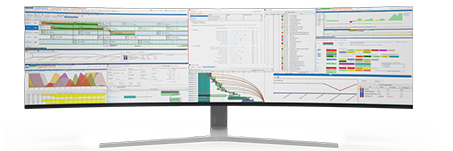Root Cause Analysis in Scheduling Delays
Scheduling delays can be a significant bottleneck in medical manufacturing. Operations Directors are tasked with ensuring seamless production flows to meet demands efficiently. However, when delays occur, identifying their root causes becomes imperative to prevent recurrence and optimize processes.
This blog looks into the importance of root cause analysis in addressing scheduling delays, with a focus on integrating scheduling solutions like PlanetTogether with major enterprise resource planning (ERP) systems such as SAP, Oracle, Microsoft, Kinaxis, and Aveva.

Understanding Scheduling Delays
Scheduling delays in medical manufacturing can arise from various sources, including machine breakdowns, material shortages, workforce issues, and unforeseen disruptions. Each delay not only impacts production timelines but also affects customer satisfaction and overall operational efficiency. Therefore, gaining insights into the root causes of these delays is crucial for maintaining competitiveness and meeting market demands.

Importance of Root Cause Analysis
Root cause analysis (RCA) is a systematic approach to identifying the underlying factors contributing to a problem. In the context of scheduling delays, RCA involves examining the entire production process, from order receipt to shipment, to pinpoint the exact causes of delays. By conducting RCA, Operations Directors can move beyond addressing symptoms and tackle the underlying issues that disrupt scheduling and production.


Integration of Scheduling Solutions
To streamline the RCA process and enhance scheduling efficiency, integrating advanced scheduling solutions like PlanetTogether with ERP systems is essential. These integrations enable seamless data flow between production scheduling and other operational functions, such as inventory management, procurement, and resource allocation. By connecting scheduling software with ERP systems like SAP, Oracle, Microsoft, Kinaxis, and Aveva, Operations Directors can access real-time information and gain actionable insights into scheduling delays.
Benefits of Integration
The integration between scheduling solutions and ERP systems offers several benefits for Operations Directors in medical manufacturing facilities:
Enhanced Visibility: Integrating scheduling software with ERP systems provides a unified view of production schedules, resource availability, and demand forecasts. This visibility allows Operations Directors to identify potential scheduling conflicts and allocate resources efficiently.
Data-driven Decision Making: By leveraging real-time data from ERP systems and scheduling software, Operations Directors can make informed decisions to mitigate scheduling delays proactively. They can analyze historical performance metrics, identify recurring patterns, and implement preventive measures to optimize production schedules.
Seamless Communication: Integration facilitates seamless communication between different departments within the organization, such as production, procurement, and logistics. This ensures that all stakeholders are aligned with the production schedule and can respond promptly to any changes or disruptions.
Continuous Improvement: With integrated scheduling solutions, Operations Directors can establish a culture of continuous improvement by regularly analyzing scheduling performance and implementing corrective actions. By addressing root causes identified through RCA, they can refine scheduling processes and drive operational excellence.
Scheduling delays can hinder operational efficiency and impact profitability in medical manufacturing. However, by adopting a systematic approach to root cause analysis and integrating advanced scheduling solutions like PlanetTogether with ERP systems, Operations Directors can overcome these challenges and drive continuous improvement.
By leveraging real-time data, predictive analytics, and seamless communication, they can optimize production schedules, minimize delays, and ensure timely delivery of high-quality products to customers.
Embracing integration between solutions like PlanetTogether and SAP, Oracle, Microsoft, Kinaxis, or Aveva is not just a technological upgrade but a strategic imperative for staying competitive in the evolving landscape of medical manufacturing.
Are you ready to take your manufacturing operations to the next level? Contact us today to learn more about how PlanetTogether and integrated scheduling solutions can help you achieve your sustainability goals and drive success in the medical industry.